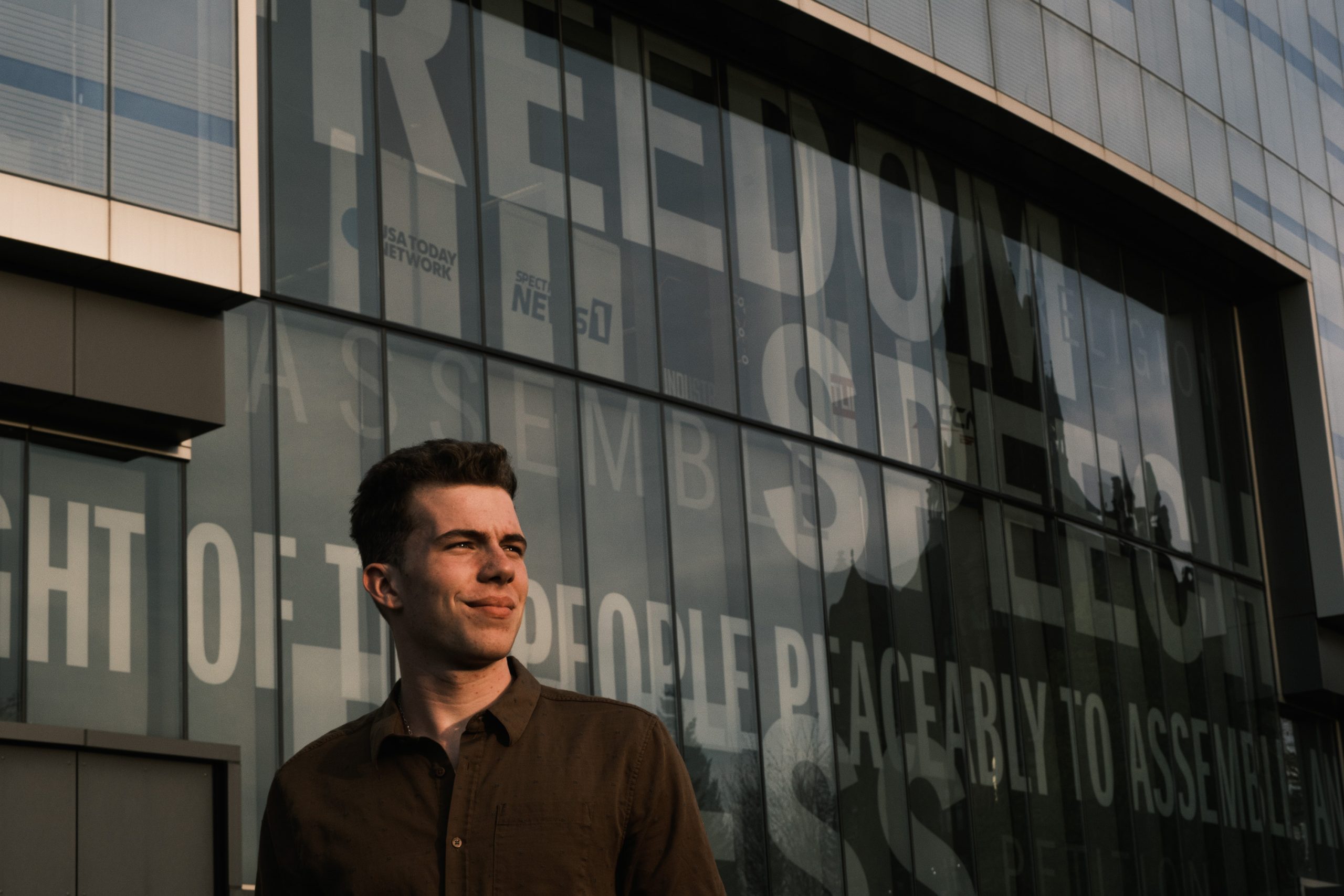
The Conservative Take on Censorship
While social media fuels disinformation, distrust and polarization, right-leaning advocates say their bigger concern is censorship.

onservatives’ views can vary widely on a host of issues. But many agree that fighting censorship is a top priority.
The conservatives we talked to point to instances of censorship online and in real life, saying their voices are being stifled and that they often find themselves unable to express their beliefs.
“I have felt pigeonholed and censored at times by those who assume they knew my stance or views merely because of the letter behind my name,” said Rebecca Shiroff, a Republican candidate for the New York State Senate.
Right-leaning believers’ alarms about censorship have gotten louder as the country’s political divisions have intensified and prominent politicians like former President Donald Trump have made fighting censorship a rallying cry.
One battleground in the censorship debate is social media, where a majority of Democrats and Republicans actually find common ground.
A 2020 Pew Research Center study found that the majority of Americans believed there was some form of censorship on social media sites But Republicans were more concerned, with 90% (compared to 59% of Democrats) believing it is likely or somewhat likely that censorship takes place.
The number of Republicans agreeing with this statement increased by 5% from 2018 to 2020, while the number of Democrats believing it decreased by 3%.
This divergence in opinion came during the presidency of Trump, who regularly decried Twitter – where he had more than 88 million followers – for what he considered censorship.
“In a country that has long cherished the freedom of expression, we cannot allow a limited number of online platforms to hand pick the speech that Americans may access and convey on the internet,” Trump said in his Executive Order on Preventing Online Censorship. “This practice is fundamentally un-American and anti-democratic. When large, powerful social media companies censor opinions with which they disagree, they exercise a dangerous power.”
Twitter banned Trump after the Capitol riots on Jan. 6, 2021, “due to the risk of further incitement of violence.” In late 20the platform’s new owner, Elon Musk, restored his access. The former president has yet to return to Twitter, instead relying on his own Truth social network.
New York Federation of College Republicans chairman James Marci sees an inequity between efforts to suppress the posts of conservatives and liberals, thus giving the perception that conservative voices are censored more.
He suggested that social media platforms are better off alerting users about posts if they contain false information rather than removing the posts or banning users outright.
“People should draw the line at violence or bigotry, but the best option is to flag content with content warnings,” Marci said. “A lot of the time leaving the content up for people to see will ultimately go in line with what the First Amendment says, even if it is false.
“Something could later on end up being true, things change all the time and stories are rapidly developing.”
SU College Republicans chairman John Parker agrees, but he says individuals need to make the effort to find out what is true and shouldn’t rely on the platforms’ decisions.
“The only way to effectively combat disinformation is competition, to do the work to disprove it and to be a responsible and checked-in individual,” Parker said.
Conservatives say they’re censored off of social media, too.
In 2019, the Trump administration took up the charge of protecting free speech on college campuses, specifically for conservative students who felt unrepresented with a broad executive order that required higher education institutions that receive federal funding be held accountable for free speech.
Among more than 100 students who joined Trump for the signing at the White House was 2021 Syracuse University alumna Justine Brooke Murray, who felt that she was censored on campus in her four years as a political science student.
Murray said she was denied approval of a chapter of the Young Americans for Freedom because the predominantly conservative group cited the U.S. Constitution as the “greatest form of governance” in their mission statement and would be “exclusionary to international students.”
An article she wrote for the conservative Campus Reform website about the episode prompted the White House invitation.
“This was alongside many other students who had experienced worse things on their campus than I had or many of the conservatives on campus that I knew at Syracuse had,” Murray said.
Murray said that following the White House visit, SU professors would tag her in posts on Facebook and students would harass her on Instagram and Twitter because they saw her alongside Trump.
Murray garnered more attention to her plight in 2021 when she responded to a judge’s question during the Miss New Jersey pageant that censorship was the top issue for her generation, calling it an “epidemic.”
“Our professors and our celebrities are teaching students to be narcissists, to believe that any of you that differs from their own is an existential threat,” Murray said. “And this is what I experienced on my own campus with censorship to the point where people believe that speech is violence so that they can threaten other people with violence, simply because they disagree with them.”
For Shiroff, who lost her 2022 bid for the N.Y. Senate by only 10 votes, said she sees the misconceptions about her and other conservatives in the news media that may discourage people from welcoming different viewpoints.
“It is vitally important to have conversations and receive information from all perspectives,” Shiroff said. “We may not always agree with each other, but we are better as a society and democracy when we try to understand each other, or at the very least respect each other and agree to disagree.”
Parker said he’s uncertain about the future of U.S. politics with disinformation infiltrating conversations, social media platforms left to determine who and what is factual, and what that means for the greater good of society.
“When political oppositions can no longer agree on reality – when everyone’s entitled to their own set of facts – there’s the impression the two parties do not even exist in the same universe,” Parker said. “The more division exists, the more distrust.”
